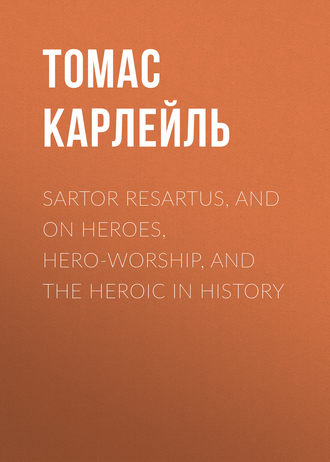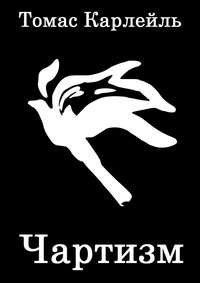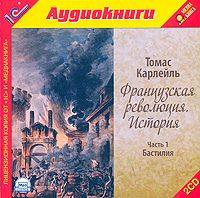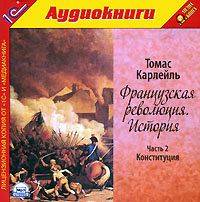 полная версия
полная версияSartor Resartus, and On Heroes, Hero-Worship, and the Heroic in History
“In short, our private opinion is, as we have remarked, that the whole story of a correspondence with Germany, a university of Nobody-knows-where, a Professor of Things in General, a Counsellor Grasshopper, a Flower-Goddess Blumine, and so forth, has about as much foundation in truth as the late entertaining account of Sir John Herschel’s discoveries in the moon. Fictions of this kind are, however, not uncommon, and ought not, perhaps, to be condemned with too much severity; but we are not sure that we can exercise the same indulgence in regard to the attempt, which seems to be made to mislead the public as to the substance of the work before us, and its pretended German original. Both purport, as we have seen, to be upon the subject of Clothes, or dress. Clothes, their Origin and Influence, is the title of the supposed German treatise of Professor Teufelsdröckh, and the rather odd name of Sartor Resartus—the Tailor Patched,—which the present Editor has affixed to his pretended commentary, seems to look the same way. But though there is a good deal of remark throughout the work in a half-serious, half-comic style upon dress, it seems to be in reality a treatise upon the great science of Things in General, which Teufelsdröckh is supposed to have professed at the university of Nobody-knows-where. Now, without intending to adopt a too rigid standard of morals, we own that we doubt a little the propriety of offering to the public a treatise on Things in General, under the name and in the form of an Essay on Dress. For ourselves, advanced as we unfortunately are in the journey of life, far beyond the period when dress is practically a matter of interest, we have no hesitation in saying, that the real subject of the work is to us more attractive than the ostensible one. But this is probably not the case with the mass of readers. To the younger portion of the community, which constitutes everywhere the very great majority, the subject of dress is one of intense and paramount importance. An author who treats it appeals, like the poet, to the young men and maidens—virginibus puerisque,—and calls upon them, by all the motives which habitually operate most strongly upon their feelings, to buy his book. When, after opening their purses for this purpose, they have carried home the work in triumph, expecting to find in it some particular instruction in regard to the tying of their neckcloths, or the cut of their corsets, and meet with nothing better than a dissertation on Things in General, they will,—to use the mildest term—not be in very good humour. If the last improvements in legislation, which we have made in this country, should have found their way to England, the author, we think, would stand some chance of being Lynched. Whether his object in this piece of supercherie be merely pecuniary profit, or whether he takes a malicious pleasure in quizzing the Dandies, we shall not undertake to say. In the latter part of the work, he devotes a separate chapter to this class of persons, from the tenour of which we should be disposed to conclude, that he would consider any mode of divesting them of their property very much in the nature of a spoiling of the Egyptians.
“The only thing about the work, tending to prove that it is what it purports to be, a commentary on a real German treatise, is the style, which is a sort of Babylonish dialect, not destitute, it is true, of richness, vigour, and at times a sort of singular felicity of expression, but very strongly tinged throughout with the peculiar idiom of the German language. This quality in the style, however, may be a mere result of a great familiarity with German literature, and we cannot, therefore, look upon it as in itself decisive, still less as outweighing so much evidence of an opposite character.”—North-American Review, No. 89, October 1835.
IV. New England Editors“The Editors have been induced, by the express desire of many persons, to collect the following sheets out of the ephemeral pamphlets** Fraser’s (London) Magazine, 1833-4. in which they first appeared, under the conviction that they contain in themselves the assurance of a longer date.
“The Editors have no expectation that this little Work will have a sudden and general popularity. They will not undertake, as there is no need, to justify the gay costume in which the Author delights to dress his thoughts, or the German idioms with which he has sportively sprinkled his pages. It is his humour to advance the gravest speculations upon the gravest topics in a quaint and burlesque style. If his masquerade offend any of his audience, to that degree that they will not hear what he has to say, it may chance to draw others to listen to his wisdom; and what work of imagination can hope to please all? But we will venture to remark that the distaste excited by these peculiarities in some readers is greatest at first, and is soon forgotten; and that the foreign dress and aspect of the Work are quite superficial, and cover a genuine Saxon heart. We believe, no book has been published for many years, written in a more sincere style of idiomatic English, or which discovers an equal mastery over all the riches of the language. The Author makes ample amends for the occasional eccentricity of his genius, not only by frequent bursts of pure splendour, but by the wit and sense which never fail him.
“But what will chiefly commend the Book to the discerning reader is the manifest design of the work, which is, a Criticism upon the Spirit of the Age,—we had almost said, of the hour,—in which we live; exhibiting in the most just and novel light the present aspects of Religion, Politics, Literature, Arts, and Social Life. Under all his gaiety the Writer has an earnest meaning, and discovers an insight into the manifold wants and tendencies of human nature, which is very rare among our popular authors. The philanthropy and the purity of moral sentiment, which inspire the work, will find their way to the heart of every lover of virtue.”—Preface to Sartor Resartus: Boston, 1836, 1837.
Sunt, Fuerunt vel FuereLondon, 30th June 1838.
SUMMARY
BOOK I Chap. I. PreliminaryNo Philosophy of Clothes yet, notwithstanding all our Science. Strangely forgotten that Man is by nature a naked animal. The English mind all-too practically absorbed for any such inquiry. Not so, deep-thinking Germany. Advantage of Speculation having free course. Editor receives from Professor Teufelsdröckh his new Work on Clothes (p. 1).
Chap. II. Editorial DifficultiesHow to make known Teufelsdröckh and his Book to English readers; especially such a book? Editor receives from the Hofrath Heuschrecke a letter promising Biographic Documents. Negotiations with Oliver Yorke. Sartor Resartus conceived. Editor’s assurances and advice to his British reader (p. 5).
Chap. III. ReminiscencesTeufelsdröckh at Weissnichtwo. Professor of Things in General at the University there: Outward aspect and character; memorable coffee-house utterances; domicile and watch-tower: Sights thence of City-life by day and by night; with reflections thereon. Old ’Liza and her ways. Character of Hofrath Heuschrecke, and his relation to Teufelsdröckh (p. 9).
Chap. IV. CharacteristicsTeufelsdröckh and his Work on Clothes: Strange freedom of speech: transcendentalism; force of insight and expression; multifarious learning: Style poetic, uncouth: Comprehensiveness of his humour and moral feeling. How the Editor once saw him laugh. Different kinds of Laughter and their significance (p. 20).
Chap. V. The World in ClothesFutile cause-and-effect Philosophies. Teufelsdröckh’s Orbis Vestitus. Clothes first invented for the sake of Ornament. Picture of our progenitor, the Aboriginal Savage. Wonders of growth and progress in mankind’s history. Man defined as a Tool-using Animal (p. 25).
Chap. VI. ApronsDivers Aprons in the world with divers uses. The Military and Police Establishment Society’s working Apron. The Episcopal Apron with its corner tucked in. The Laystall. Journalists now our only Kings and Clergy (p. 31).
Chap. VII. Miscellaneous-HistoricalHow Men and Fashions come and go. German Costume in the fifteenth century. By what strange chances do we live in History! The costume of Bolivar’s Cavalry (p. 34).
Chap. VIII. The World out of ClothesTeufelsdröckh’s Theorem, “Society founded upon Cloth”; his Method, Intuition quickened by Experience.—The mysterious question, Who am I? Philosophic systems, all at fault: A deeper meditation has always taught, here and there an individual, that all visible things are appearances only; but also emblems and revelations of God. Teufelsdröckh first comes upon the question of Clothes: Baseness to which Clothing may bring us (p. 37).
Chap. IX. AdamatismThe universal utility of Clothes, and their higher mystic virtue, illustrated. Conception of Mankind stripped naked; and immediate consequent dissolution of civilised Society (p. 43).
Chap. X. Pure ReasonA Naked World possible, nay actually exists, under the clothed one. Man, in the eye of Pure Reason, a visible God’s Presence. The beginning of all wisdom, to look fixedly on Clothes till they become transparent. Wonder, the basis of Worship: Perennial in man. Modern Sciolists who cannot wonder: Teufelsdröckh’s contempt for, and advice to them (p. 47).
Chap. XI. ProspectiveNature not an Aggregate, but a Whole. All visible things are emblems, Clothes; and exist for a time only. The grand scope of the Philosophy of Clothes.—Biographic Documents arrive. Letter from Heuschrecke on the importance of Biography. Heterogeneous character of the documents: Editor sorely perplexed; but desperately grapples with his work (p. 52).
BOOK II Chap. I GenesisOld Andreas Futteral and Gretchen his wife: their quiet home. Advent of a mysterious stranger, who deposits with them a young infant, the future Herr Diogenes Teufelsdröckh. After-yearnings of the youth for his unknown Father. Sovereign power of Names and Naming. Diogenes a flourishing Infant (p. 61).
Chap. II IdyllicHappy Childhood! Entepfuhl: Sights, hearings and experiences of the boy Teufelsdröckh; their manifold teaching. Education; what it can do, what cannot. Obedience our universal duty and destiny. Gneschen sees the good Gretchen pray (p. 68).
Chap. III PedagogyTeufelsdröckh’s School. His Education. How the ever-flowing Kuhbach speaks of Time and Eternity. The Hinterschlag Gymnasium; rude Boys; and pedant Professors. The need of true Teachers, and their due recognition. Father Andreas dies: and Teufelsdröckh learns the secret of his birth: His reflections thereon. The Nameless University. Statistics of Imposture much wanted. Bitter fruits of Rationalism: Teufelsdröckh’s religious difficulties. The young Englishman Herr Towgood. Modern Friendship (p. 76).
Chap. IV Getting under WayThe grand thaumaturgic Art of Thought. Difficulty in fitting Capability to Opportunity, or of getting underway. The advantage of Hunger and Bread-Studies. Teufelsdröckh has to enact the stern mono-drama of No object and no rest. Sufferings as Auscultator. Given up as a man of genius, Zähdarm House. Intolerable presumption of young men. Irony and its consequences. Teufelsdröckh’s Epitaph on Count Zähdarm (p. 90).
Chap. V RomanceTeufelsdröckh gives up his Profession. The heavenly mystery of Love. Teufelsdröckh’s feeling of worship towards women. First and only love. Blumine. Happy hearts and free tongues. The infinite nature of Fantasy. Love’s joyful progress; sudden dissolution; and final catastrophe (p. 101).
Chap. VI Sorrows of TeufelsdröckhTeufelsdröckh’s demeanour thereupon. Turns pilgrim. A last wistful look on native Entepfuhl: Sunset amongst primitive Mountains. Basilisk-glance of the Barouche-and-four. Thoughts on View-hunting. Wanderings and Sorrowings (p. 112).
Chap. VII The Everlasting NoLoss of Hope, and of Belief. Profit-and-Loss Philosophy, Teufelsdröckh in his darkness and despair still clings to Truth and follows Duty. Inexpressible pains and fears of Unbelief. Fever-crisis: Protest against the Everlasting No: Baphometic Fire-baptism (p. 121).
Chap. VIII Centre of IndifferenceTeufelsdröckh turns now outwardly to the Not-me; and finds wholesomer food. Ancient Cities: Mystery of their origin and growth: Invisible inheritances and possessions. Power and virtue of a true Book. Wagram Battlefield: War. Great Scenes beheld by the Pilgrim: Great Events, and Great Men. Napoleon, a divine missionary, preaching La carrière ouverte aux talens. Teufelsdröckh at the North Cape: Modern means of self-defence. Gunpowder and duelling. The Pilgrim, despising his miseries, reaches the Centre of Indifference (p. 128).
Chap. IX The Everlasting YeaTemptations in the Wilderness: Victory over the Tempter. Annihilation of Self. Belief in God, and love to Man. The origin of Evil, a problem ever requiring to be solved anew: Teufelsdröckh’s solution. Love of Happiness a vain whim: A Higher in man than Love of Happiness. The Everlasting Yea. Worship of Sorrow. Voltaire: his task now finished. Conviction worthless, impossible, without Conduct. The true Ideal, the Actual: Up and work! (p. 138).
Chap. X PauseConversion; a spiritual attainment peculiar to the modern Era. Teufelsdröckh accepts Authorship as his divine calling. The scope of the command Thou shalt not steal.—Editor begins to suspect the authenticity of the Biographical documents; and abandons them for the great Clothes volume. Result of the preceding ten Chapters: Insight into the character of Teufelsdröckh: His fundamental beliefs, and how he was forced to seek and find them (p. 149).
BOOK III Chap. I Incident in Modern HistoryStory of George Fox the Quaker; and his perennial suit of Leather. A man God-possessed, witnessing for spiritual freedom and manhood (p. 156).
Chap. II Church-ClothesChurch-Clothes defined; the Forms under which the Religious principle is temporarily embodied. Outward Religion originates by Society: Society becomes possible by Religion. The condition of Church-Clothes in our time (p. 161).
Chap. III SymbolsThe benignant efficacies of Silence and Secrecy. Symbols; revelations of the Infinite in the Finite: Man everywhere encompassed by them; lives and works by them. Theory of Motive-millwrights, a false account of human nature. Symbols of an extrinsic value; as Banners, Standards: Of intrinsic value; as Works of Art, Lives and Deaths of Heroic men. Religious Symbols; Christianity. Symbols hallowed by Time; but finally defaced and desecrated. Many superannuated Symbols in our time, needing removal (p. 163).
Chap. IV HelotageHeuschrecke’s Malthusian Tract, and Teufelsdröckh’s marginal notes thereon. The true workman, for daily bread, or spiritual bread, to be honoured; and no other. The real privation of the Poor not poverty or toil, but ignorance. Over-population: With a world like ours and wide as ours, can there be too many men? Emigration (p. 170).
Chap. V The PhœnixTeufelsdröckh considers Society as dead; its soul (Religion) gone, its body (existing Institutions) going. Utilitarianism, needing little farther preaching, is now in full activity of Destruction.—Teufelsdröckh would yield to the Inevitable, accounting that the best: Assurance of a fairer Living Society, arising, Phœnix-like, out of the ruins of the old dead one. Before that Phœnix death-birth is accomplished, long time, struggle, and suffering must intervene (p. 174).
Chap. VI Old ClothesCourtesy due from all men to all men: The Body of Man a Revelation in the Flesh. Teufelsdröckh’s respect for Old Clothes, as the ‘Ghosts of Life.’ Walk in Monmouth Street, and meditations there (p. 179).
Chap. VII Organic FilamentsDestruction and Creation ever proceed together; and organic filaments of the Future are even now spinning. Wonderful connection of each man with all men; and of each generation with all generations, before and after: Mankind is One. Sequence and progress of all human work, whether of creation or destruction, from age to age.—Titles, hitherto derived from Fighting, must give way to others. Kings will remain and their title. Political Freedom, not to be attained by any mechanical contrivance. Hero-worship, perennial amongst men; the cornerstone of polities in the Future. Organic filaments of the New Religion: Newspapers and Literature. Let the faithful soul take courage! (p. 183).
Chap. VIII Natural SupernaturalismDeep significance of Miracles. Littleness of human Science: Divine incomprehensibility of Nature. Custom blinds us to the miraculousness of daily-recurring miracles; so do Names. Space and Time, appearances only; forms of human Thought: A glimpse of Immortality. How Space hides from us the wondrousness of our commonest powers; and Time, the divinely miraculous course of human history (p. 191).
Chap. IX CircumspectiveRecapitulation. Editor congratulates the few British readers who have accompanied Teufelsdröckh through all his speculations. The true use of the Sartor Resartus, to exhibit the Wonder of daily life and common things; and to show that all Forms are but Clothes, and temporary. Practical inferences enough will follow (p. 201).
Chap. X The Dandiacal BodyThe Dandy defined. The Dandiacal Sect a new modification of the primeval superstition Self-worship: How to be distinguished. Their Sacred Books (Fashionable Novels) unreadable. Dandyism’s Articles of Faith.—Brotherhood of Poor-Slaves: vowed to perpetual Poverty; worshippers of Earth; distinguished by peculiar costume and diet. Picture of a Poor-Slave Household; and of a Dandiacal. Teufelsdröckh fears these two Sects may spread, till they part all England between them, and then frightfully collide (p. 204).
Chap. XI TailorsInjustice done to Tailors, actual and metaphorical. Their rights and great services will one day be duly recognised (p. 216).
Chap. XII FarewellTeufelsdröckh’s strange manner of speech, but resolute, truthful character: His purpose seemingly to proselytise, to unite the wakeful earnest in these dark times. Letter from Hofrath Heuschrecke announcing that Teufelsdröckh has disappeared from Weissnichtwo. Editor guesses he will appear again, Friendly Farewell (p. 219).
ON HEROES, HERO-WORSHIP, AND THE HEROIC IN HISTORY
LECTURE I
THE HERO AS DIVINITY. ODIN. PAGANISM: SCANDINAVIAN MYTHOLOGY
[Tuesday, 5th May 1840]We have undertaken to discourse here for a little on Great Men, their manner of appearance in our world’s business, how they have shaped themselves in the world’s history, what ideas men formed of them, what work they did;—on Heroes, namely, and on their reception and performance; what I call Hero-worship and the Heroic in human affairs. Too evidently this is a large topic; deserving quite other treatment than we can expect to give it at present. A large topic; indeed, an illimitable one; wide as Universal History itself. For, as I take it, Universal History, the history of what man has accomplished in this world, is at bottom the History of the Great Men who have worked here. They were the leaders of men, these great ones; the modellers, patterns, and in a wide sense creators, of whatsoever the general mass of men contrived to do or to attain; all things that we see standing accomplished in the world are properly the outer material result, the practical realisation and embodiment, of Thoughts that dwelt in the Great Men sent into the world: the soul of the whole world’s history, it may justly be considered, were the history of these. Too clearly it is a topic we shall do no justice to in this place!
One comfort is, that Great Men, taken up in any way, are profitable company. We cannot look, however imperfectly, upon a great man, without gaining something by him. He is the living light-fountain, which it is good and pleasant to be near. The light which enlightens, which has enlightened the darkness of the world; and this not as a kindled lamp only, but rather as a natural luminary shining by the gift of Heaven; a flowing light-fountain, as I say, of native original insight, of manhood and heroic nobleness;—in whose radiance all souls feel that it is well with them. On any terms whatsoever, you will not grudge to wander in such neighbourhood for a while. These Six classes of Heroes, chosen out of widely-distant countries and epochs, and in mere external figure differing altogether, ought, if we look faithfully at them, to illustrate several things for us. Could we see them well, we should get some glimpses into the very marrow of the world’s history. How happy, could I but, in any measure, in such times as these, make manifest to you the meanings of Heroism; the divine relation (for I may well call it such) which in all times unites a Great Man to other men; and thus, as it were, not exhaust my subject, but so much as break ground on it! At all events, I must make the attempt.
It is well said, in every sense, that a man’s religion is the chief fact with regard to him. A man’s, or a nation of men’s. By religion I do not mean here the church-creed which he professes, the articles of faith which he will sign and, in words or otherwise, assert; not this wholly, in many cases not this at all. We see men of all kinds of professed creeds attain to almost all degrees of worth or worthlessness under each or any of them. This is not what I call religion, this profession and assertion; which is often only a profession and assertion from the outworks of the man, from the mere argumentative region of him, if even so deep as that. But the thing a man does practically believe (and this is often enough without asserting it even to himself, much less to others); the thing a man does practically lay to heart, and know for certain, concerning his vital relations to this mysterious Universe, and his duty and destiny there, that is in all cases the primary thing for him, and creatively determines all the rest. That is his religion; or it may be, his mere scepticism and no-religion: the manner it is in which he feels himself to be spiritually related to the Unseen World or No-World; and I say, if you tell me what that is, you tell me to a very great extent what the man is, what the kind of things he will do is. Of a man or of a nation we inquire, therefore, first of all, What religion they had? Was it Heathenism,—plurality of gods, mere sensuous representation of this Mystery of Life, and for chief recognised element therein Physical Force? Was it Christianism; faith in an Invisible, not as real only, but as the only reality; Time, through every meanest moment of it, resting on Eternity; Pagan empire of Force displaced by a nobler supremacy, that of Holiness? Was it Scepticism, uncertainty and inquiry whether there was an Unseen World, any Mystery of Life except a mad one;—doubt as to all this, or perhaps unbelief and flat denial? Answering of this question is giving us the soul of the history of the man or nation. The thoughts they had were the parents of the actions they did; their feelings were parents of their thoughts: it was the unseen and spiritual in them that determined the outward and actual;—their religion, as I say, was the great fact about them. In these Discourses, limited as we are, it will be good to direct our survey chiefly to that religious phasis of the matter. That once known well, all is known. We have chosen as the first Hero in our series, Odin the central figure of Scandinavian Paganism; an emblem to us of a most extensive province of things. Let us look for a little at the Hero as Divinity, the oldest primary form of Heroism.
Surely it seems a very strange-looking thing this Paganism; almost inconceivable to us in these days. A bewildering, inextricable jungle of delusions, confusions, falsehoods and absurdities, covering the whole field of Life! A thing that fills us with astonishment, almost, if it were possible, with incredulity,—for truly it is not easy to understand that sane men could ever calmly, with their eyes open, believe and live by such a set of doctrines. That men should have worshipped their poor fellow-man as a God, and not him only, but stocks and stones, and all manner of animate and inanimate objects; and fashioned for themselves such a distracted chaos of hallucinations by way of Theory of the Universe: all this looks like an incredible fable. Nevertheless it is a clear fact that they did it. Such hideous inextricable jungle of misworships, misbeliefs, men, made as we are, did actually hold by, and live at home in. This is strange. Yes, we may pause in sorrow and silence over the depths of darkness that are in man; if we rejoice in the heights of purer vision he has attained to. Such things were and are in man; in all men; in us too.









